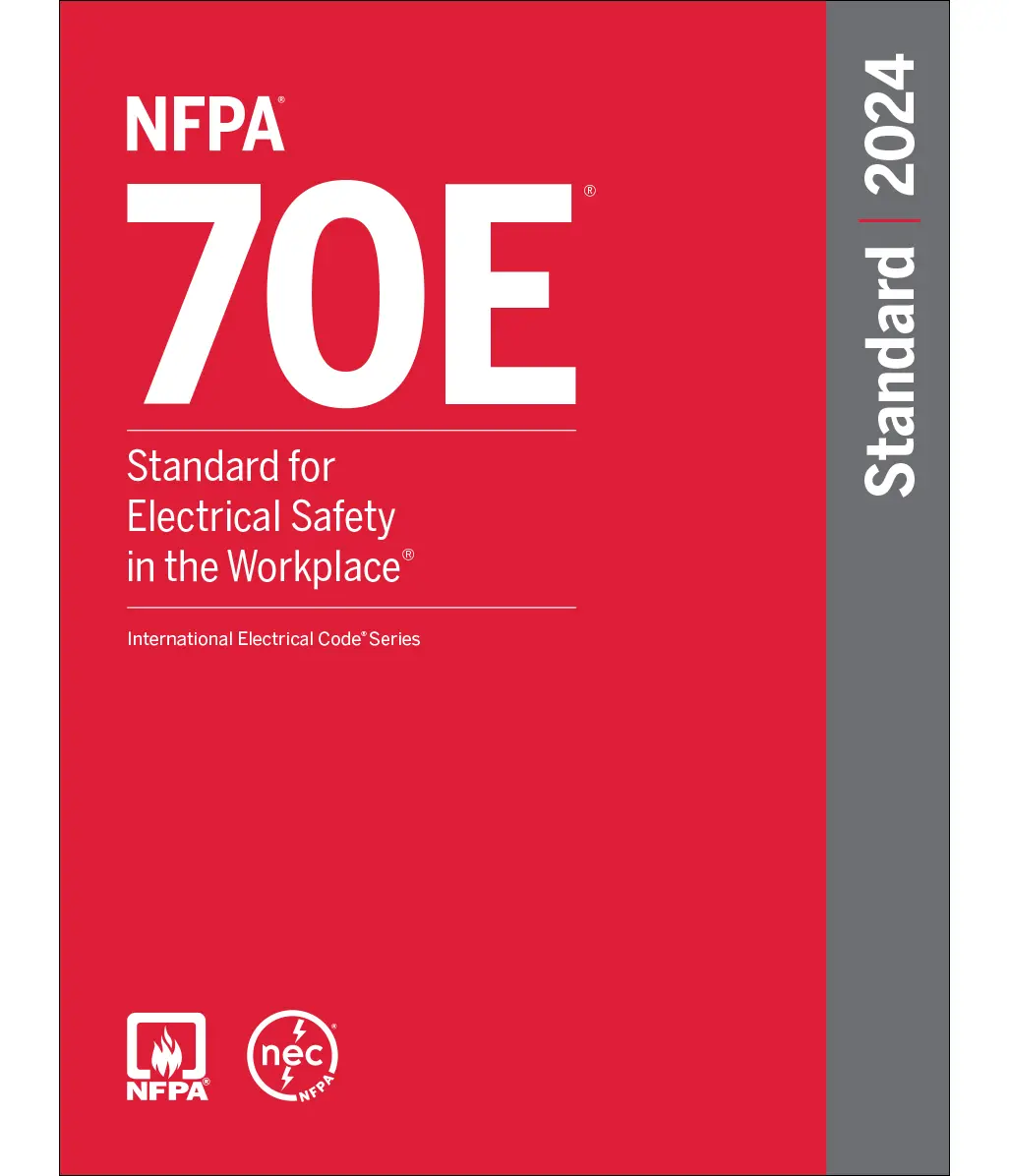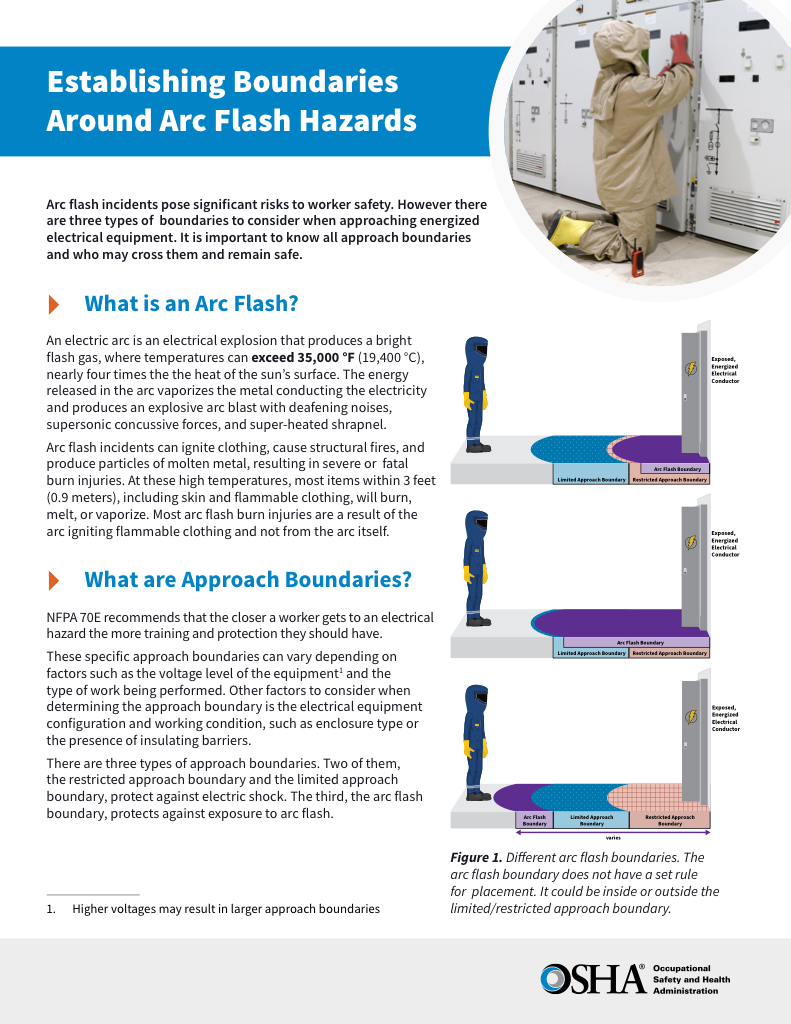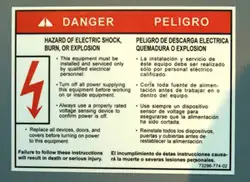NFPA 70E Course
By R.W. Hurst, Editor

NFPA 70e Training
Our customized live online or in‑person group training can be delivered to your staff at your location.

- Live Online
- 6 hours Instructor-led
- Group Training Available
Download Our OSHA 4474 Fact Sheet – Establishing Boundaries Around Arc Flash Hazards

- Understand the difference between arc flash and electric shock boundaries
- Learn who may cross each boundary and under what conditions
- Apply voltage-based rules for safer approach distances
NFPA 70E course delivers electrical safety training on arc flash, shock hazards, PPE selection, risk assessment, lockout/tagout, incident energy analysis, boundaries, and OSHA compliance for qualified persons in industrial and commercial environments.
What Is an NFPA 70E Course?
An NFPA 70E course covers electrical safety, arc flash, PPE selection, risk controls, and OSHA-compliant practices.
✅ Arc flash risk assessment and incident energy analysis
✅ Shock and arc flash boundaries; PPE categories and selection
✅ Lockout/tagout procedures and electrically safe work practices
An NFPA 70E course is a crucial training program designed to educate workers about electrical hazards and safe work practices. Such a course must align with the NFPA 70E standard, which provides workplace electrical safety guidelines. By understanding the key components and requirements of the NFPA 70E course, workers can significantly reduce the risk of electrical injuries and ensure compliance with OSHA regulations. For a broader overview of course structure and learning outcomes, see the NFPA 70E training overview to understand how modules align with workplace hazards.
How Often Should I Register for an NFPA 70E Course?
It is recommended that workers register for an NFPA 70E course every three years. This frequency ensures that they stay updated with the latest safety practices and changes in regulations. Regular retraining helps reinforce the principles of electrical safety and keeps workers informed about any new developments or amendments to the NFPA 70E standard. For specific guidance on intervals and triggers for refresher education, consult the NFPA 70E retraining frequency guidance for examples tied to job changes and regulatory updates.
What Are the Main Points of the NFPA 70E Course?
The NFPA 70E course covers several essential topics to ensure comprehensive understanding and application of electrical safety practices: Many providers outline these core modules within their 70E training curriculum to help organizations map competencies to roles.
FREE EF Electrical Training Catalog
Download our FREE Electrical Training Catalog and explore a full range of expert-led electrical training courses.

- Live online and in-person courses available
- Real-time instruction with Q&A from industry experts
- Flexible scheduling for your convenience
-
Introduction to NFPA 70E Standard: Overview of the standard, its purpose, and its importance in workplace safety.
-
Understanding Electrical Hazards: Detailed explanation of electrical hazards, including shock, burns, and other injuries that can result from exposure to electrical energy.
-
Safe Work Practices: Guidelines and procedures for safe work practices to minimize the risk of electrical incidents.
-
Risk Assessment: Techniques for conducting thorough risk assessments to identify potential hazards and implement appropriate control measures.
-
Personal Protective Equipment (PPE): Information on selecting, using, and maintaining PPE to protect workers from electrical hazards.
-
Workplace Safety Program: Developing and implementing a comprehensive safety program that incorporates NFPA 70E standards and best practices.
What is the General Retraining Requirement for NFPA 70E?
The general retraining requirement for NFPA 70E is every three years. This retraining is essential to ensure that workers remain knowledgeable about current safety practices and regulatory updates. Additionally, retraining may be required if there are significant changes to job responsibilities, equipment, or the safety program, or if a worker is involved in an electrical incident. You can compare policy expectations with the standard’s training provisions in this NFPA 70E training requirements reference to verify documentation and refresher triggers.
What Are the Two Main Types of Risk Assessments Taught in an NFPA 70E Course?
The NFPA 70E course teaches two main types of risk assessments:
-
Shock Risk Assessment: This assessment evaluates the potential for electrical shock and the necessary protective measures. It involves identifying exposed energized parts, determining the voltage levels, and selecting appropriate PPE to prevent shock hazards.
-
Arc Flash Risk Assessment: This assessment focuses on the potential for arc flash incidents and the measures needed to protect workers. It includes calculating incident energy, establishing arc flash boundaries, and specifying the PPE required to protect against thermal injuries. Practical exercises are often drawn from dedicated NFPA 70E arc flash training so teams can practice boundary calculations and PPE selection.
What Type of NFPA 70E Course Training Documentation is Required?
Proper documentation is essential for maintaining compliance and ensuring that workers have completed the necessary training. The required documentation typically includes:
-
Training Records: Detailed records of all training sessions, including the date, duration, and content covered. These records should also include the names and signatures of attendees.
-
Certificates of Completion: Certificates issued to workers upon successful completion of the NFPA 70E course and the final exam. These certificates serve as proof of training and competency in electrical safety. Organizations frequently align their recordkeeping with recognized NFPA 70E certification practices to simplify audits and proof of competency.
-
Assessment Results: Documentation of the results from risk assessments conducted during the training. This includes both shock and arc flash risk assessments, detailing the identified hazards and recommended control measures.
-
Safety Program Updates: Records of any updates or changes to the workplace safety program based on the training outcomes and assessments. This ensures that the program remains effective and up-to-date with current standards.
The NFPA 70E course is a vital component of electrical safety training, designed to protect workers from the dangers associated with electrical hazards. By understanding the main points of the course, adhering to retraining requirements, and maintaining thorough documentation, organizations can enhance their safety programs and ensure compliance with NFPA 70E and OSHA regulations. Regular training and risk assessments are essential for creating a safe work environment and reducing the risk of electrical injuries. When scheduling or scaling access, many employers leverage flexible NFPA 70E online training options to accommodate remote crews and shift-based operations.







